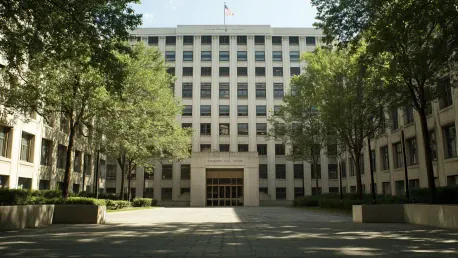The U.S. Department of Education is undergoing significant staffing changes that hint at a potential reorientation toward Trump-era policies and administrative approaches under the potential leadership of Linda McMahon. Should McMahon be confirmed by the Senate, her appointment would signify a major shift, influenced heavily by the America First Policy Institute (AFPI), a think tank she founded. Key posts within the department have already been filled by former AFPI staff members, indicating a stronger alignment with the policy priorities and values championed during Trump’s first term. These staffing changes are poised to reshape the department’s strategic focus and governance style, reflecting a broader conservative agenda.
Strategic Placement of AFPI Personnel
Several key positions within the Department of Education have been filled by individuals with strong ties to the America First Policy Institute. Notable appointments include Rachel Oglesby as chief of staff and Jonathan Pidluzny as deputy chief of staff for policy and programs. These selections suggest a deliberate shift toward AFPI’s policy priorities, which emphasize job opportunities that do not necessarily require a college degree and significant reforms in higher education. This includes a strong focus on curbing university diversity, equity, and inclusion (DEI) efforts, which have been a cornerstone of AFPI’s platform.
Additionally, Candice Jackson has been appointed as deputy general counsel. Jackson is widely recognized for her influential role in shaping the controversial 2020 Title IX rule during Trump’s first term, although her appointment has been met with some controversy due to past statements on sexual assault accusations, which she later apologized for. Tom Wheeler, appointed as principal deputy general counsel, is another significant addition to the team. Wheeler is known for overturning Obama-era guidance on transgender students’ bathroom use, further underlining the department’s shift towards conservative policies and practices.
Reversion to Trump-Era Policies
The overarching trend emerging within the Department of Education is a clear reversion to Trump-era policies and a strict adherence to a conservative agenda. One of the more prominent actions signaling this shift is the potential redefinition of sex to strictly biological male and female categories, a move initially begun under Trump’s executive orders. This policy shift exemplifies the broader agenda of AFPI and its influence, which extends beyond the Department of Education to other federal sectors, including the appointment of Brooke Rollins as agriculture secretary and Dr. Heidi Overton to the White House Domestic Policy Council.
Experts like Jackie Wernz have noted this influx of America First personnel as foreseeable given McMahon’s leadership history and her well-documented agenda. However, some have expressed concerns that traditional governance norms may be sidelined in favor of this conservative recalibration. This skepticism is especially relevant in the context of Trump’s existing challenges to legislation surrounding issues like immigration and school safety.
Controversial Appointments and Their Implications
The recent appointment of Steve Warzoha as the new White House liaison adds another layer of complexity and controversy. Warzoha, a long-time McMahon ally from Connecticut, carries baggage from a 2022 DUI arrest following a visit to Mar-a-Lago. Despite the controversy, Madi Biedermann, the Department’s new communications and outreach deputy assistant secretary, declined to comment on the incident. This particular appointment highlights the interconnectedness and loyalty within McMahon’s circle, which has both its supporters and detractors.
Despite the current emphasis on higher education and school safety, there is an anticipation of further announcements, likely including the nomination of an assistant secretary for elementary and secondary education. This would aim to balance the expertise within the leadership team and ensure a comprehensive approach to education policy. Conservatives like Rick Hess from the American Enterprise Institute and David Cleary from The Group lobbying firm have praised these appointees as exceptionally knowledgeable and experienced. They argue that these selections indicate a more prepared and cohesive team than during Trump’s earlier tenure, reflecting a broader conservative educational agenda that extends beyond school choice alone.
Focus on Civil Rights and Potential Concerns
The U.S. Department of Education is experiencing significant staffing changes, suggesting a potential shift towards policies resembling those from the Trump era, particularly if Linda McMahon is confirmed by the Senate as the new head. McMahon’s appointment would mark a major transition influenced considerably by the America First Policy Institute (AFPI), a think tank she established. Several key positions within the department have already been taken by former AFPI employees, signaling a deeper alignment with the policy goals and values promoted during Trump’s initial term. This strategic realignment could reshape the department’s focus and governance style to reflect broader conservative objectives, including policy changes promoting school choice, deregulation, and other key priorities from the Trump administration. This transition highlights a potential shift in educational policy direction, emphasizing a return to conservative principles and a reevaluation of previous education reforms, aiming to bring about significant changes in the Department’s strategy and overall mission.









